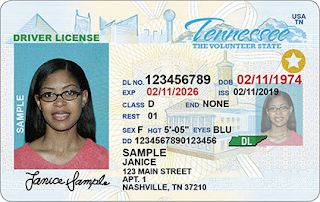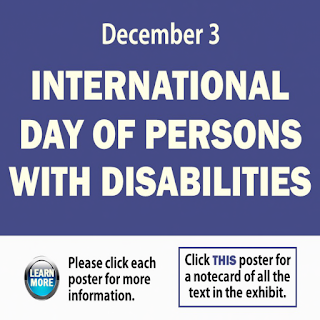This blog posting is for the International Disability
Affirmation Rights Conference, being held now on Friday November 10, with a theme
of "Do, Create, Live." I am a deaf
private tutor and use English and American Sign Language to communicate in
person and online. I earned three
professional tutoring credentials from the Tutoring and Instructional Programs
(TIP) at Gallaudet University as part of my job training. I started my business in 2004 and had a
variety of clients, both hearing and deaf.
I was also a provider of tutoring services for vocational rehabilitation
for all three regions, Maryland, DC, and Virginia, in the greater DC metropolis.
My best memory as a provider is when I tutored a deaf man at the Library of
Congress and saw the floor to ceiling rolling book racks in the basement that
he worked with. I was a provider given access to a privileged
section of the Library of Congress that few people see. I love books, have a library in my living
room, and I enjoyed my time at the Library of Congress. So, naturally, the epitome is being at the
Library of Congress and seeing their racks of books. I help people experience the joy of learning
English. Tutoring my students and clients opens the world of books up to them. I have seen my clients go on to be successful
in their own ways.
It is not necessary to have a high quantity of clients in
order to be successful as a tutor. For
example, while I was tutoring someone for business administration, I read in
the textbook about a company that is exclusively in service to one and only one
other company. In other words, that
company had just one customer. I often
had just one client for a long time. I’ve worked with them throughout their entire
schooling and seen them graduate with an undergraduate or graduate degree,
including one Ph.D. degree in linguistics.
The range of academic subjects I was exposed to as part of
my tutoring role was from general education requirements to college majors and
graduate specializations. My knowledge
of academic subjects was broadened and updated as I corrected grammatical
mistakes, edited sentences for clarity, reorganized ideas logically, and
provided overall feedback on my clients’ academic papers and homework. Knowledge was a key benefit that I had
received as a result of working behind the scenes in the supporting role of a
tutor.
I had also been a deaf tutor for three different colleges as
their employee, not as a freelancer. It
was a joy to meet people from all over the world and to work with them on their
English or Spanish skills. Tutoring them
meant working with them one on one on projects of their choosing. I had been a study table tutor with just a few
students in the evenings and later, a language lab teacher with a classroom
full of students. A teacher has a
starring, highlighted role in the classroom as all the students depend on the
teacher to lead them. A tutor, on the
other hand, usually lets the student decide how the session will go. Having interesting interactions with the
students’ individual personalities and developing cordial working friendships
with them were the advantages that I gained. I was not seeking fame, but many of the students
have me on their friend list on Facebook and I am pleased that they want me on
their friend list.
I also appreciate the moment of literary fame when my
clients list my name in a publication that I have helped them with as their
editor. Editing papers for formal
publication is a natural extension of tutoring.
As a side note, I am also a self-published author and have some
experience with publishing ebooks and print books on various online platforms,
including Amazon.com. The process of
submitting a paper for publication is widely variable, and I learn how other
people react to the content and style of my client’s paper. Sometimes, it is pleasurable to hear positive
feedback and the potential reach that a paper will have once it is published. Helping the deaf client achieve this kind of
influence and fame is another reason why a supporting role is good.
There is a negative side to having too much fame in the Deaf
World, unfortunately, and it is called the Crab Theory. The theory goes like this: If there is a deaf person successfully
climbing the ladder of success, other deaf people on the same ladder or on
other ladders will reach up and pull down the deaf person out of jealousy,
spite, or selfishness. People in the
Deaf World are not united, and factions often exist for minor differences that
hearing people do not typically understand.
One analogy I can think of that religious people can relate
to is the minor differences between the various Protestant churches and
denominations that they fight over. A
Buddhist or Muslim may not understand the infighting of the Protestants at all.
That being said, being in the limelight
often means being subject to brutal and cruel criticisms that may or may not be
justified. Someone in a supporting role
is able to avoid these zings, maintain objectivity, and even help the person
being targeted respond to the criticisms constructively.
Laypersons may not know that well-written criticisms and counter
arguments are expected and encouraged in academic research and literature. Rational thought processes and data-driven
research is subject to reactions and alternate interpretations as individual as
the researchers who write up their papers. It is good for debates occur on paper because
they help to build a better understanding of the academic field for future
generations of researchers.
In conclusion, I hope that my supporting role as a tutor
helped many students and clients achieve their goals and gain recognition from
society at large.










